
Natural Soap: Citrus Woods Green Tea Soap
- Out Of Stock

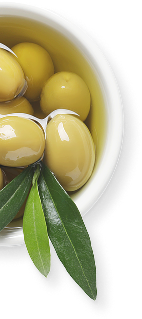
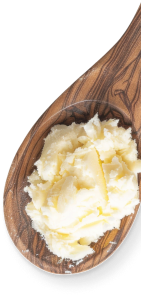
A classic Bay Rum soap scented with real West Indian Bay essential oil, brightened with orange and warm spice. Enriched with coconut milk, unrefined shea butter, and botanical infusions, this creamy bar creates a rich, fragrant lather with a warm, spicy character loved by both men and women.






Good For: All Skin Types
Bay Rum is timeless for a reason. Warm, spicy, and unmistakably masculine, this soap carries the familiar aroma of classic barbershops and island breezes — confident, comforting, and quietly bold.
The lather is rich and creamy, spreading easily over the skin and making each wash feel indulgent. Coconut milk and shea butter add body to the foam and help keep the cleansing experience comfortable, leaving skin feeling smooth, moisturized, and refreshed.
The scent leads with the exotic warmth of West Indian Bay, layered with bright citrus and gentle spice. Orange lifts the blend with a clean freshness, while notes of clove and allspice add depth and richness. The result is a fragrance that feels grounded and inviting — warm rather than sharp, classic rather than overpowering.
Infused botanicals add a subtle, soothing presence to the bar, rounding out the formula and reinforcing its easy, everyday appeal. This is a soap that feels equally at home in a morning shower or an evening wind-down — confident, familiar, and enduring.
Every ingredient in this soap is chosen for a reason. Thoughtfully combined, they work together to create something richer than a simple cleanse — a carefully crafted bar that goes beyond ordinary soap.
Highlights of this recipe:
West Indian Bay Essential Oil — Provides the soap’s signature warm, spicy aroma with a classic masculine edge.
Sweet Orange Essential Oil — Adds a bright, clean lift that keeps the blend fresh and balanced.
Coconut Milk — Adds a rich creaminess to the lather and a nourishing feel to the skin.
Unrefined Shea Butter — Adds depth and density to the lather and contributes to the bar’s smooth, moisturizing feel.
Botanical Infusions (Chicory Root & Elderberries) — Add subtle depth and a gentle, grounding presence to the bar.
👉 Learn more about our Aroma, Texture & Lather notes
Warm spice. Creamy lather. A timeless Bay Rum classic.
 The purpose of soap is to combine with oil and dirt on the body, which allows water to wash it away. The method you use to cleanse your skin is really a personal preference. We thought we would share just a few examples.
The purpose of soap is to combine with oil and dirt on the body, which allows water to wash it away. The method you use to cleanse your skin is really a personal preference. We thought we would share just a few examples.
Bar Bathers rub the bar directly on their skin to create a creamy lather. Massaging the velvety lather into your skin before rinsing allows you to experience the best moisturizing properties of the soap. This is definitely the best way to use exfoliating soaps.
Hand Latherers create lather in their clean hands and use the lather to massage and wash the skin. This gentle, mild cleansing method may be good for those with sensitive skin.
 Washcloth Washers use a washcloth to lather up. Washcloths are made out of lots of different textile textures, from soft cotton to agave fibers, and can provide very gentle to intense exfoliation. Be sure washcloths are laundered and dried often.
Washcloth Washers use a washcloth to lather up. Washcloths are made out of lots of different textile textures, from soft cotton to agave fibers, and can provide very gentle to intense exfoliation. Be sure washcloths are laundered and dried often.
Puff Polishers use a mesh puff that works up a foamy, bubbly lather, even with hard water, to wash and gently exfoliate the skin. Poofs make natural soap last longer but can harbor bacteria, so rinse thoroughly after use and replace every few weeks or clean per manufacturer's instructions.
Loofah Latherers love their loofahs that exfoliate and help increase circulation. Whole loofahs can be breeding grounds for bacteria, so be sure they dry out properly after use and replace them every two months. If you would like something less abrasive, check out our Bath & Body Accessories.
Soap Sackers place their soap into a nylon soap bag. The fibers have a smooth texture for gentle cleansing. Soap sacks can be used for whole bars of soap or scraps that would normally be thrown away.
There is a large variety of bathing accessories available. If using any accessory, never share them with others and replace or clean them often.

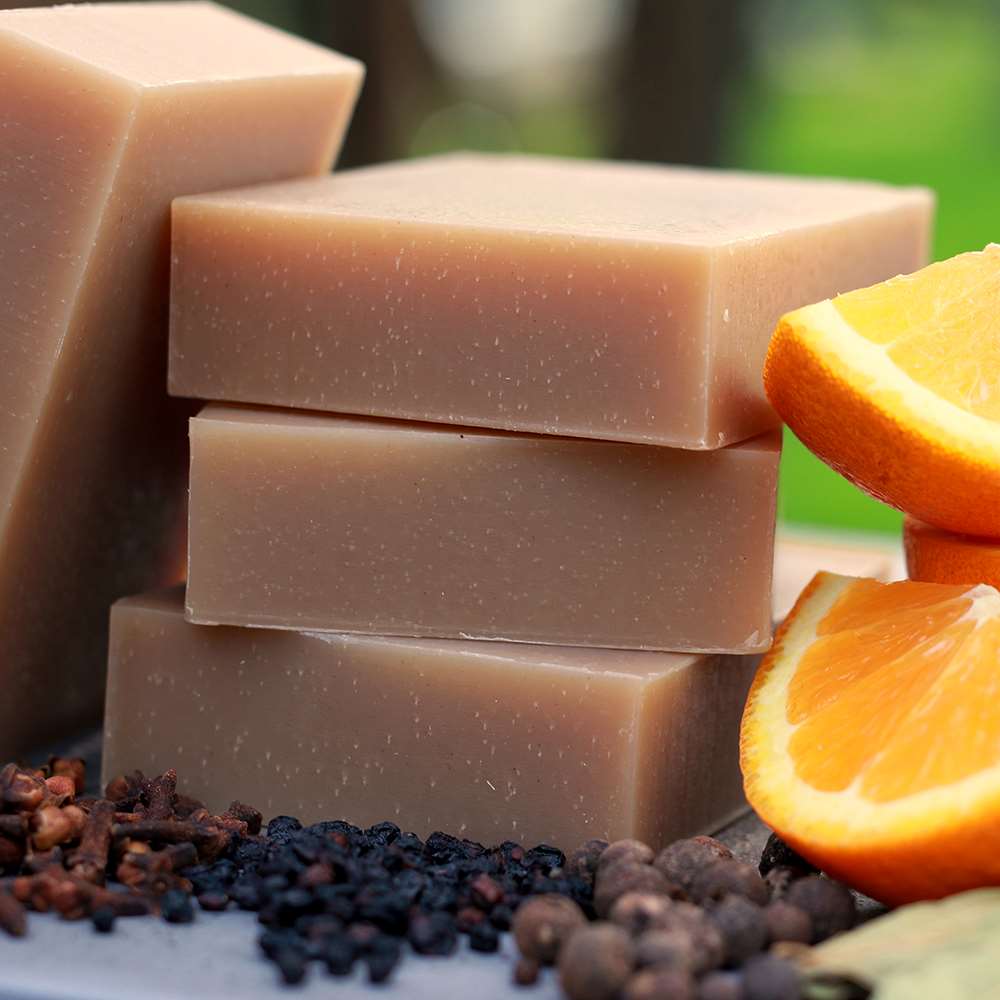
The goal is simple: to Harness the Power & Simplicity of Nature® to cleanse, soothe, heal, and protect your skin and hair!
Our unique formulas rely on moisturizing oils and butters, healing botanicals, and pure essential oils. We choose every ingredient with one end-result in mind….the BEST possible natural skin care for YOU!
 West Indian Bay Essential Oil
West Indian Bay Essential Oil
 Organic Chicory Root
Organic Chicory Root
 Organic Elderberries
Organic Elderberries
|
*Ingredient is Fair Trade Certified ^Used in the saponification process to turn oil into soap and glycerin. None remains in the finished product.
Made with Organic Coconut Milk, Shea Butter, and Chicory Root
|
Please Note: Although the ingredient listed on the packaging may say "arrowroot powder", we are using Tapioca Flour.

Regular handwashing is one of the best ways to remove germs, avoid getting sick, and prevent the spread of germs to others.
The CDC (Centers for Disease Control and Prevention) says that for good hand hygiene all you need is plain soap and water.
Clean hands can stop germs from spreading from one person to another and throughout an entire community.
Five simple and effective steps can help reduce the spread of illness so you, your family, your friends and the general public can stay healthy.
CDC recommends cleaning hands in a specific way to avoid getting sick and spreading germs to others. The guidance for effective hand washing was developed based on data from a number of studies.
1. Wet your hands with clean, warm running water and apply soap.
2. Lather your hands by rubbing them together with the soap.
3. Scrub your hands for at least 20 seconds.
4. Rinse your hands well under clean, running water.
5. Dry your hands using a clean towel or air dry them.
To date, studies have shown that there is no added health benefit for consumers (this does not include professionals in the healthcare setting) using soaps containing antibacterial ingredients compared with using plain soap.
Information is taken from the CDC.gov website
Read our blog "Simple Soap Can Help Decrease the Spread Of Viruses"
I have been using only natural soap on my face and body for over 20 years. It is the first product I learned to make.

My skin has become so accustomed to the benefits of these lovely bars, that everything else makes my skin itch.
Our soap bars travel with me everywhere I go. I even keep one-time-use scraps in my purse to use in public restrooms!
While I believe that many of the "reasons" listed below may apply to some natural handmade soap companies, I will focus on the one company with which I have intimate knowledge and experience--CHAGRIN VALLEY.
Most of the soap you purchase today is a commercially manufactured chemical cocktail of ingredients. It is not natural and is not even really “soap.” They are nothing more than detergents in disguise.
Here is what the FDA has to say:
“Today there are very few true soaps on the market. Most body cleansers, both liquid and solid, are actually synthetic detergent products. Detergent cleansers are popular because they make suds easily in water and don't form gummy deposits. Some of these detergent products are actually marketed as "soap" but are not true soap according to the regulatory definition of the word.” Source
The very best reason to use natural soap is the ingredients. A product is only as good as the ingredients used to make it.
OUR skin-nourishing ingredients are USDA Certified Organic, sustainably produced, cruelty-free, and ethically traded.
Harnessing the Power of Nature we make each soap bar unique by adding a variety of organic butters, purifying natural clays, organic herbs, seeds, grains, spices, flowers, vegetables, fruits, chocolate, and pure botanical essential oils to provide natural color, aromatherapy, texture, and gentle exfoliation.
Our soap bars contain only the ingredients that they need—no extra preservatives that liquid body washes or commercial bar "soaps" require to increase their shelf life to years, and no foam boosters to make them lather.

Sadly many people have the misguided perception that all bar soaps will dry your skin. The problem is that most commercial bar “soaps” are detergents and not real soap.
So why are natural soaps so moisturizing? Of course, it's the ingredients! Natural soap made of pure ingredients derived directly from nature is a rare find these days. Here are a few other reasons.
Superfatting
Superfatting is the process of adding extra fats (oils or butters) when formulating a soap recipe so there is more fat in the mixture than the lye can react with during the chemical reaction. This process creates a more hydrating bar with superior moisturizing and emollient qualities.
Our soap bars are formulated with lots of extra plant oils and butters. We superfat our bars at a higher rate than most soapmakers.
Natural Glycerin
Glycerin is not added to a natural handmade soap recipe – it is created during the natural soap making process called saponification. Once saponification is complete, the ingredients have combined and chemically changed into soap, glycerin, and a bit of water.
Glycerin, a precious and gentle emollient, is a humectant that draws moisture from the air to the skin creating a moisturizing protective layer.
Commercial soap manufacturers remove the glycerin from their soaps because excess glycerin decreases the shelf-life of soap and they can sell the glycerin or use it in products that command a higher price like the lotion.
Think about it! Commercial soap companies remove the moisturizing ingredient (the glycerin) which in turn creates a soap that dries your skin and then they use the glycerin they removed to sell you a skin-moisturizing lotion. Quite an ingenious profit-making strategy!
Thus skin-nourishing ingredients, plus superfatting and natural saponification create a soap bar full of moisturizing, natural oils, and natural glycerin.
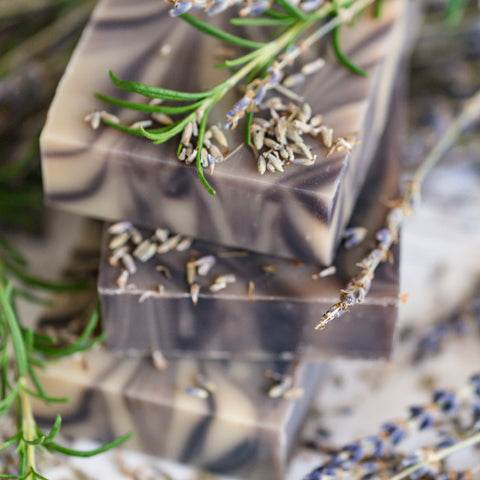
Our scented natural soaps are made with pure essential oils, not fragrance oils, and offer aromatherapeutic benefits.
Fragrance oils, whether artificially created or derived from natural components, may duplicate the smell of a flower or herb, but they do not offer the therapeutic advantages of essential oils.
Furthermore, the generic term, “fragrance” or “parfum” on a label can indicate the presence of up to 3,000 separate ingredients and the FDA does not require companies to disclose what is in a “fragrance,” because it is considered a “trade secret.”
BLOG: Why We Use Only Real Plant Essential Oils
The body’s largest organ, our skin, is incredibly porous and absorbent. How we treat our skin can have a major impact on our overall health as well as the look and feel of our skin.
Everyone wants healthy skin and our skin is not a fan of synthetic chemicals. I cannot count how many times customers have told us that our natural soap has not only helped improve their skin but has improved their lives by relieving itchiness and dryness, and easing irritated skin conditions such as eczema and acne.
People absolutely love bubbly lather. The foam, bubbles, and lather we know and love from commercial liquid and bar soaps are produced by surfactants--synthetic foam boosters, lathering agents, and detergents.
A properly formulated and cured bar of natural soap needs no synthetic additives to create a lather or to clean because natural soap is a natural surfactant. So it not only makes great bubbles and lather, but it also helps clean oily dirt from your skin--naturally!
BLOG: "How Does Natural Soap Create Lather?"
Some consumers are put off by the cost of handmade soap. You probably look at a bar of natural soap and wonder why it costs more. I mean, soap is soap, right? Both bars clean your skin, right?
While I may agree that both bars clean the skin, the similarity goes no further. Simply put, commercial soaps contain synthetic ingredients that are very cheap to produce in a lab.
If you use a liquid body wash the main ingredient is water. You pay for water. A properly cured soap bar has very little water remaining, meaning you are getting exactly what you pay for.
I believe that old saying, "You get what you pay for," rings true when comparing a handmade bar of a natural soap to a commercial brand!
BLOG: "The True Cost of Commercial Soap"
It may seem odd that a product we use to keep our bodies clean is doing quite the opposite for our environment.
If you are not using a natural soap, as you take a bath or shower you coat your skin with synthetic compounds like fragrances, dyes, preservatives, and detergents. These synthetic ingredients wash down our drains into our septic fields or water treatment facilities. Now imagine the millions of people who use these soaps each day.
Also, if you use a liquid body wash, how many plastic bottles and pumps do you dispose of in a single year?

I make handmade natural soap. I did not invent anything new.
But what I know is that our natural soap is made in small batches by people who have a passion as well as a mission for making natural products.
For me, soapmaking is a synergy of science and art that took years to perfect. It is a labor of love. I take the time to create wholesome soap recipes that do not sacrifice beauty or scent while incorporating amazing natural and organic ingredients.
While I am sure there are some large commercial soap companies with a social conscience, natural soapmakers tend to have the utmost respect for the earth and all its creatures.
Environmental stewardship is not a buzzword for us. It is not a talking point, not a political stance nor is it about optics!
At Chagrin Valley it is our practice to use raw materials that are sourced in an environmentally and ethically responsible manner.
Dedication to a kinder and gentler way of living is a big part of why we do what we do.
 If you are holding this soap in your hand, I probably don't need to convince you that shopping small business is important. Your purchase really does make a difference.
If you are holding this soap in your hand, I probably don't need to convince you that shopping small business is important. Your purchase really does make a difference.
When you buy a handmade bar of natural soap, you are supporting a small business that truly cares about and believes in the products they make.
Small businesses are run by people - not by boards or stockholders. They are often entrepreneurs who bring a creative freshness into an otherwise regimented world.
We do it all ourselves--from start to finish--from our hands to your hands--from our family to yours! Thank you!
Before I conclude I would like to add one final reason to the question of "Why You Should Switch To Natural Soap Bars."
From its composition to its benefits for the skin and health, to its impact on the environment, natural soap is very different from commercial liquid “soap,” bar “soap,” or syndet bars.
 Saying a soap is "handmade" says nothing about quality of the ingredients or the knowledge and skill of the soapmaker!
Saying a soap is "handmade" says nothing about quality of the ingredients or the knowledge and skill of the soapmaker!
Chagrin Valley is not just another soap and skincare company. We are committed to healthy skin, healthy people and a healthy planet.
We are a USDA Certified Organic Company specializing in luxurious, organic, handmade natural soaps and shampoo bars rich in natural glycerin for healthier skin and hair.
It's all about the ingredients! Inspired by our love of nature, we use organic herbs, seeds, flowers, vegetables, fragrant spices, fruits, pure essential oils and purifying clays for their exceptional skincare benefits and to provide natural color, aromatherapy, texture, or gentle exfoliation. Nothing artificial, nothing synthetic, no GMO’s, just natural wholesome ingredients.
Our soap making process uses only natural and organic ingredients. Why add artificial ingredients to a handmade product?

"Are All Handmade Soaps The Same?"
"12 Reasons to Use Natural Soap"
 How long a natural soap bar will last depends on:
How long a natural soap bar will last depends on:
For one person showering every day, a well-drained bar should last for about one month.
Natural soaps are normally softer than commercial soaps because they retain their natural glycerin (which is removed in commercial soap production) and contain no artificial hardening chemicals, synthetic waxes or free alkali.
We also superfat our soaps (add extra oils or butters) and use "softer" oils so that Chagrin Valley natural soaps are more emollient and leave skin feeling moisturized.
Different oils impart different qualities to soap. Some add lathering qualities, some moisturizing, some hardness, and so on. Compared to other natural bars, we use a larger percentage of extra moisturizing and conditioning oils in our soaps and shampoo bars. These oils produce a bar that may not be as hard as bars with less conditioning oils.
How you use the bar will also affect its lifespan. For example, do you use a washcloth, an exfoliating accessory, or only the bar? Although exfoliating loofahs and sponges are great they will use up the soap much faster than a washcloth or the "only the bar" purists.
Our Natural Soap Will Last A Long Time With Proper Care
Cute Story: A customer called to say she loved our soaps but could not buy them anymore because they did not last as long as other soaps. A week later she called to place an order and apologize. Her husband, who would NEVER use her natural soaps before, fell in love with her new Juniper soap . . . and he showered twice a day!
To maximize the life of your soap, keep it in a well-drained soap dish so it can dry between uses.
We sell a handcrafted solid white oak soap dish. The deep ridges are perfect for keeping your all natural handcrafted soap dry between uses. White Oak is the wood used in shipbuilding.
A tip passed on by one of our customers whose kids always leave the soap in a water puddle: cut the large bars in halves. Then alternate the halves, allowing a longer drying time between uses.
 Although we get asked this question often, it is a very difficult one to answer, because the bottom line is . . . how old is the bar? Is It freshly cut or has it been allowed to cure?
Although we get asked this question often, it is a very difficult one to answer, because the bottom line is . . . how old is the bar? Is It freshly cut or has it been allowed to cure?
Handmade soap and shampoo bars made using the cold process method and at the end of the soap reaction (saponification), they still contain water. The curing process allows excess water to evaporate.
Our freshly cut full-size bars are soft and weigh approximately 6.0 to over 6.5 ounces.
These bars will lose approximately 12% of their weight as most of the water evaporates during the first 6 to 8 weeks of curing time. This means that an average fresh bar, at 6.5 ounces will weigh approximately 5.7 ounces after about 8 weeks.
At Chagrin Valley Soap, our soap and shampoo bars are cured for about 10 to 12 weeks before selling and moisture will continue to evaporate over time as the bar ages. So, as our soap and shampoo bars sit waiting for a new home they will continue to shrink in size.
Some soap makers use the fresh-cut weight on their packaging, but we feel that is an inaccurate description. We use the average weight of our bars after at least a 10 week curing time.
While some companies allow their soaps to cure for only 4-weeks, but we know that our longer, slower curing time ensures a milder, harder, longer-lasting bar, with a very rich lather.
Some soap companies shrink wrap their soap bars to help prevent continuous shrinkage due to evaporation. We have a few big problems with that idea. First of all, we know that we definitely do not need any more plastic added to our planet. Secondly, although we know there will continue to be a small weight (and scent) loss over time, we prefer that over sacrificing the quality of our soap.
Since each of our soap/shampoo recipes is different and the percent of liquid used varies, the amount of water that evaporates over time and the bar size will also vary.
The average weight of Chagrin Valley full-size natural soap and shampoo bars is about 5.2 to 5.6 ounces after 10 weeks of curing. The average full-bar dimensions in inches are approximately 3.75 x 3 x 1.
Our Mini Bars of Soap and Shampoo (Loofah Foot, Pet Bars & Camping) weigh approximately 3 to 3.6 ounces.
Our Natural Soap and Shampoo Trial Size Sample Bars weigh approximately 1.5 to 2 ounces.
Summary of the variation in weight
Compare our bar size! Most handmade soap companies sell full size bars that are about 3.5 to 4.5 ounces. Our customers have told us that they like the larger size bars.
When you compare the prices of other soaps, please compare SIZE and ingredients as well!
For a great explanation of the process involved in making soap please read our blog, "How We Make Soap"
We sometimes receive emails that go like this:
The good news is that when you purchase natural soap from an organic skincare company, it is scented with only pure essential oils.
The bad news is that when you purchase natural soap from an organic skincare company, it is scented with only pure essential oil.
The scent of an essential in any totally natural product can and will change over time and from batch to batch.
Essential oils come from nature. The quality and scent of essential oils are affected by yearly weather conditions and varies from crop to crop and region to region.
This makes it very difficult to produce finished products in which the scents are always exactly the same.
Most commercial soaps (and skincare products), even some of the "natural" ones that contain some essential oils, are made with at least some synthetic fragrances oils, nature identical oil, or natural fragrance oil. Using any synthetic fragrance ensures a more consistent scent.
Essential oils are temperamental to work under any circumstance. But while a natural essential oil scent blend may change a bit in a cream or oil, these blends are especially unpredictable when making cold processed natural soap.
After all my years of soap making in never ceases to amaze me just how much the actual soap making process changes the scent of an essential oil blend.

Natural Soap and Essential Oils
Why We Use Only Real Plant Essential Oils?
Natural Fragrance Oil? . . . Really?
Why Are Synthetic Fragrance Oils So Popular?
NO! Adding antibacterial chemicals to soap does not keep your family safe from germs.
I understand why folks (especially those with children) are choosing products labeled “Antibacterial,” hoping to keep their family safe in the war against germs.
According to Janet Woodcock, M.D., director of the FDA’s Center for Drug Evaluation and Research (CDER).
"Consumers may think antibacterial washes are more effective at preventing the spread of germs, but we have no scientific evidence that they are any better than plain soap and water.
In fact, some data suggests that antibacterial ingredients may do more harm than good over the long-term.”
Simply washing your hands with old-fashioned natural soap and water rids your skin of most fungi, bacteria, and viruses. Soap does not kill germs, it surrounds them and carries them away.
Please read our blog: Antibacterials: More Harm Than Good!
Yes And No!
Although handmade natural soaps usually get better with age, we recommend using our soaps within 12 months of purchase. Our scented soaps should be used within 3 months after removing them from the box.
Although the soaps will not be "spoiled" after that time, you may notice some changes as natural soap ages.
The changes in color and scent happen even more quickly in our sample size bars.
These small natural soap bars have a much greater surface area to volume ratio which allows essential oils to evaporate from the surface more quickly. However, the scent may still be there when you lather up.
I have found some ancient bars hiding in my closet that years old. The scents were gone, but the lather was incredible!
For a more detailed discussion please read our blog, "The Shelf Life, Color & Scent of an All Natural Soap."
 If you are asking the question:
If you are asking the question:Do you use lye (sodium hydroxide) to make Chagrin Valley natural soap?
The answer is -- yes, of course.
No lye -- No soap!
All REAL soap is made with lye (sodium hydroxide mixed with a liquid).
Any skin or hair cleansing product made without sodium hydroxide is not soap, it is a detergent.
Is there lye in a bar of Chagrin Valley Natural Soap or Shampoo?
The answer is "No."
When the chemical reaction of making soap, called saponification, is complete, the lye and oil molecules have combined and chemically changed into soap and glycerin.
If the soap is made properly, the lye is used up in the saponification process to turn oil into soap.
There is no lye present in the finished bars of soap or shampoo. While all real soap must be made with lye, no lye remains in our finished product after saponification (described below).
If it is real soap or contains read soap, it is made with lye!
Some commercial "soap" bars and all handmade soap bars are made with lye even though the words "sodium hydroxide" or "lye" do not appear on the labels. Does your bar of "soap" contain ingredients such as...
These words are not usually used to deceive consumers. But soap makers know that consumers are afraid of the word "lye."
At Chagrin Valley we believe that today's consumers are pretty savvy and the best practice is to educate.

"Is There Lye in Natural Soap? Won't it Harm My Skin? Information about lye and the chemistry of soap making
Yes, they are!
Chagrin Valley natural soap and shampoo bars are made with natural and organic ingredients and are biodegradable when used properly.
They’re thoughtfully crafted to break down naturally in the environment, which makes them a responsible choice for everyday use and for outdoor adventures when used with care.
By definition, biodegradable means capable of being broken down by living organisms, such as naturally occurring bacteria, into simpler substances that are not harmful to the environment.
Natural soap made with plant oils, butters, and clays can biodegrade efficiently — but where and how it’s used matters.
Bringing a biodegradable soap on a camping or backpacking trip is a wonderful way to stay comfortable and refreshed outdoors. However, even biodegradable soap should never be used directly in lakes, rivers, or streams.

You may see claims online suggesting that biodegradable soap or shampoo is safe to use directly in rivers and streams.
While these claims are often made with good intentions, they overlook an important part of how biodegradation actually works.
The bacteria responsible for breaking down natural soap live primarily in soil, not water.
That means soap — even biodegradable soap — breaks down most effectively when it comes into contact with organic soil, not freshwater sources.
Even biodegradable soap will pollute lakes and streams if it is not used properly.
So while our soaps are biodegradable, they are designed for mindful outdoor use, not for bathing, washing dishes, or cleansing directly in natural water sources.
A few simple practices help protect waterways and support natural breakdown:
These methods help surround the soap with organic matter, speed up decomposition, and reduce runoff.
Yes — when used responsibly.
Many commercial soaps, body washes, shampoos, and dish detergents contain synthetic surfactants, artificial fragrances and colors, and chemical preservatives.
Since these ingredients do not break down quickly, traces can persist in the environment for many, many years and can have a potential negative impact on plants and animals.
A biodegradable natural soap made with plant-based ingredients breaks down more readily when exposed to soil bacteria, making it a far better choice for outdoor use — as long as it’s used thoughtfully and away from waterways.
Biodegradable doesn’t mean anywhere.
It means used with intention and respect for nature.
That philosophy is at the heart of how we make our soaps — and how we encourage them to be used.
There’s no substitute for nature. Together, we can protect it from impacts like overuse, trash, and harming endangered wildlife by following the principles of "Leave No Trace."







Help Me Choose a Natural Soap: Your skin type is unique to you! We have compiled natural soap recommendations based on information gathered from friends, family, and customers. We hope this will help you make your choices based on skin care needs and sensitivities.
Read Post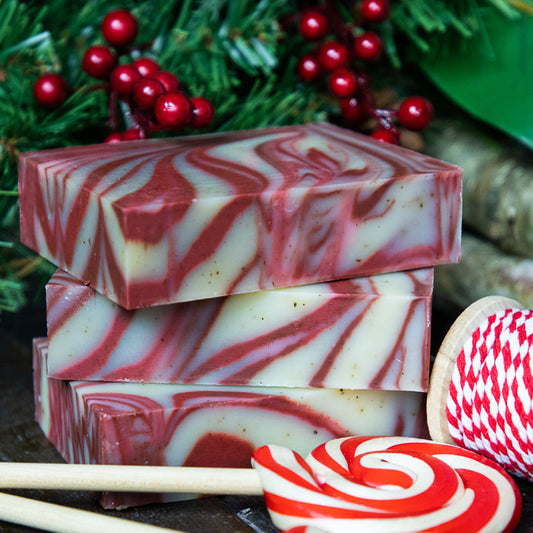
Get a behind-the-scenes look at our soapmaking process, from formulating recipes to selecting natural ingredients. Learn what sets our handmade soaps apart and how we ensure each bar meets our high standards for quality and craftsmanship.
Read Post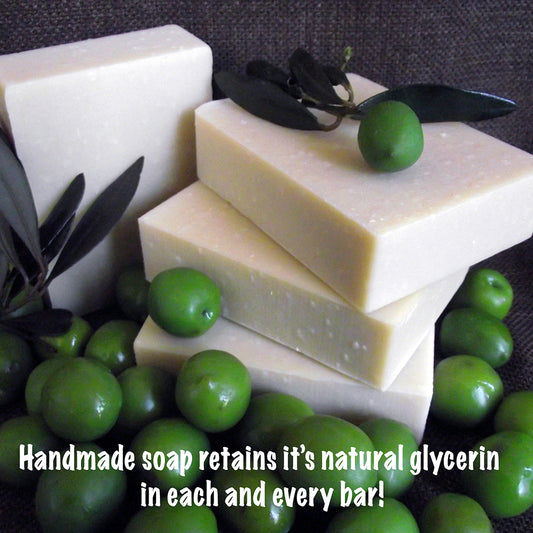
The term "glycerin soap" is a misleading term. All true soap made from scratch is glycerin soap. Learn more about glycerin and “glycerin” soap.
Read Post